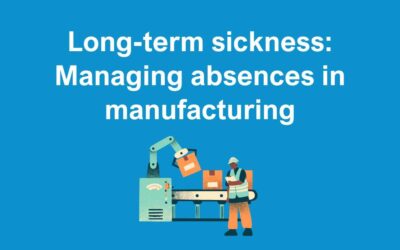In the ever-evolving landscape of employment law, employers often find themselves navigating a complex web of regulations, negotiations, and disputes. One invaluable tool in this realm, which deserves greater attention, is Early Conciliation. This process is designed to resolve workplace disputes before they escalate into costly and time-consuming legal battles. In this blog post, we will explore what Early Conciliation entails and why it makes sound commercial sense for employers, particularly when dealing with claims that might seem frivolous or vexatious.
This is a subject we support some of our clients with when they are faced with an employment tribunal claim.
What is Early Conciliation?
Early Conciliation is a process offered by ACAS (Advisory, Conciliation, and Arbitration Service) in the UK, aimed at helping employers and employees find mutually agreeable solutions to workplace disputes. It’s important to note that Early Conciliation is entirely voluntary, and both parties must agree to participate.
Here’s how the process typically works:
- Notification: When an employee intends to bring a tribunal claim against their employer, they are required to notify ACAS. ACAS then contacts both parties to offer assistance in resolving the dispute.
- Conciliation: A trained conciliator facilitates discussions between the employer and employee. These discussions are confidential and conducted with the aim of finding a resolution that both parties can accept.
- COT3/Settlement Agreement: If an agreement is reached, it is formalised in a legally binding document known as a “Settlement Agreement.” This agreement outlines the terms and conditions of the settlement, including any financial compensation, and often includes a confidentiality clause. COT3 agreements are used to resolve employment disputes, typically between an employer and an employee, and they serve as a formal, legally recognised way to reach a settlement without going through the full process of a tribunal hearing.
Here are some key points to understand about COT3 agreements:
- Voluntary Agreement: Both parties, the employer, and the employee, must voluntarily agree to enter into a COT3 agreement. It is a consensual process, and neither party can be forced into it.
- Terms and Conditions: The COT3 agreement outlines the terms and conditions of the settlement. This includes details such as the amount of any financial compensation (if applicable), any non-financial terms, and any confidentiality clauses.
- Binding and Final: Once both parties have agreed to the terms and signed the COT3 agreement, it becomes legally binding. This means that neither party can later bring the same dispute to an employment tribunal. It provides finality to the resolution.
- Confidentiality: COT3 agreements often include confidentiality clauses, which stipulate that the terms and details of the settlement should remain confidential. This is to prevent either party from discussing the settlement publicly.
- No Admission of Liability: In many COT3 agreements, the employer does not admit any wrongdoing or liability. This allows both parties to reach a resolution without assigning blame.
- Independent Advice: Before signing a COT3 agreement, both parties are encouraged to seek independent legal advice. This ensures that they fully understand the terms and implications of the agreement.
- ACAS Involvement: ACAS (Advisory, Conciliation, and Arbitration Service) often plays a role in facilitating the negotiation and drafting of COT3 agreements. ACAS conciliators can help both parties reach a mutually acceptable settlement.
COT3 agreements are commonly used in cases of unfair dismissal, discrimination, breach of contract, and other employment-related disputes. They provide a quicker and less costly alternative to a full employment tribunal hearing while allowing parties to resolve their differences and move forward.
It’s important to note that the specific terms and conditions of a COT3 agreement can vary widely depending on the circumstances of the dispute and the negotiations between the parties involved. Employers and employees should carefully consider their options and seek legal advice to ensure that any COT3 agreement aligns with their interests and rights.
Why Early Conciliation Makes Sense for Employers:
- Cost-Efficiency: Legal disputes can incur substantial costs in terms of legal fees, court expenses, and potential compensation pay outs. Engaging in Early Conciliation offers employers an opportunity to mitigate these expenses significantly. It’s a cost-effective alternative to lengthy litigation.
- Time Savings: Legal battles can be time-consuming, stretching on for months or even years. Early Conciliation expedites the resolution process, allowing employers to get back to business as usual much sooner.
- Reputation Management: A publicised legal dispute can harm an organisation’s reputation. By settling early and avoiding the courtroom, employers can maintain a positive public image and minimise damage to their brand, even when they have done nothing wrong.
- Preserving Workplace Harmony: Internal conflicts and court proceedings can disrupt workplace morale and productivity. Early Conciliation helps preserve a harmonious work environment, reducing the negative impact on employees and operations.
- Objective Assessment: Some claims may indeed be frivolous or vexatious. Early Conciliation provides an opportunity for employers to objectively assess the merit of a claim and make informed decisions about whether to settle or defend their position.
- Confidentiality: Early Conciliation discussions are typically confidential, providing a safe and discreet space for both parties to explore potential solutions without the fear of public scrutiny.
Navigating the Process:
Engaging in Early Conciliation requires a strategic approach. Employers should:
- Gather Information: Understand the facts surrounding the dispute thoroughly and assess the strengths and weaknesses of your position.
- Negotiate Effectively: Approach negotiations with a willingness to compromise while protecting your organisation’s interests.
- Consult Legal Counsel: Seek legal advice to ensure you make informed decisions throughout the process.
In conclusion
Early Conciliation is a powerful mechanism for employers to resolve workplace disputes swiftly and economically. While it may not be the right solution for every case, it should be a proactive option to consider, especially when confronted with claims that might seem frivolous or vexatious.
Remember, the essence of Early Conciliation is to find common ground and facilitate constructive dialogue, transforming disputes into opportunities for resolution. By embracing this approach, employers can not only save resources but also foster a culture of cooperation and harmony within their organisations.
We’ve helped lots of businesses with this process, and it is beneficial for employers, for the reasons highlighted above, to engage in Early Conciliation. You should also try and take the emotion out of it – in many cases, you will have done nothing wrong, but you want to consider a commercial settlement, for the reasons outlined on this blog. Being stubborn will end up costing you legal fees and money!







